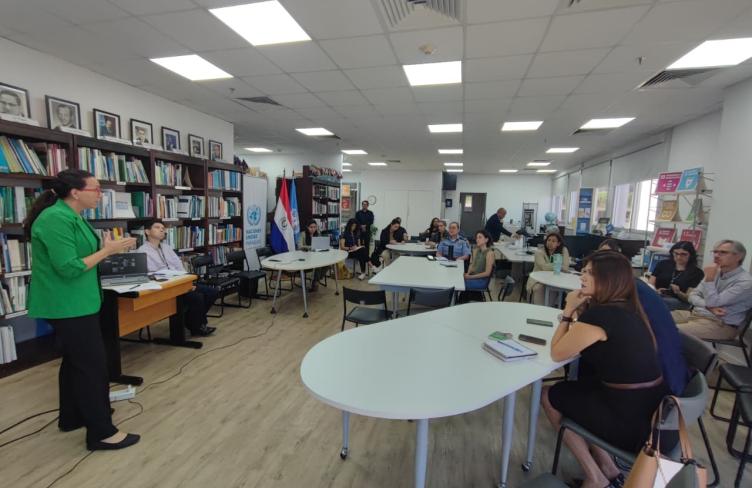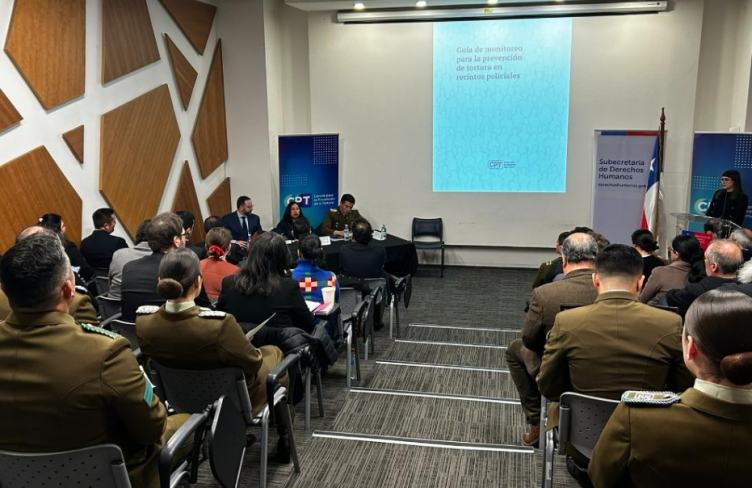
An analysis of data collected through an online tool established by the APT and UNDP – COVID-19 Digital Mapping: Justice and Deprivation of Liberty – has revealed four key trends across the prison systems of Latin America and the Caribbean during the pandemic.
Prior to the pandemic, national prison systems across the 31 countries in the region faced several common challenges, including overcrowding, violence, excessive use of pre-trial detention and poor conditions of detention.
In addition, few prison systems paid specific attention to the needs of different groups deprived of liberty: women, LGBTI persons, indigenous peoples, elderly people and people with disabilities.
While each national prison system has its own unique context, a series of trends can be identified across the region as decision makers and detention authorities grapple with the unprecedented challenges posed the COVID-19 pandemic.
Trend 1: The pandemic has promoted alternative measures to deprivation of liberty
In the 10 years leading up to the pandemic, according to the Inter-American Development Bank (IDB), prison populations in Latin America and the Caribbean had grown by 120% compared to 24% for the rest of the world.
However, when a global pandemic was declared in March 2020, there was a clear need to reduce prison populations to prevent widespread transmission of the virus among persons deprived of liberty and staff. The implementation non-custodial measures (pre-trial) and non-custodial sanctions (post-conviction) became a matter of urgency.
Countries mainly adopted three types of measures:
- The enactment of new legislation aimed at reducing prison populations.
- The application of existing legal measures such as pardons, amnesties and commutation of sentences. In Bolivia, Colombia, Panama and Peru, presidential decrees were issued to promote the release of certain groups of persons deprived of liberty. These schemes were generally targeted at people suffering chronic diseases, women living in prison with their children, older persons, people with disabilities among others.
- The issuance of agreements by the Judiciary to implement alternative measures to prison. In Argentina, the Chamber of Criminal Cassation published Agreement No.9/2020, in which it recommended that the courts adopt alternative measures to the deprivation of liberty.
These changes were also made in conjunction with steps to limit the number of new admissions to prisons or police stations resulting from violation of COVID-19 isolation or quarantine requirements.
We identified that, between March and December 2020, there was a reduction of between 3 to 18% in the prison population in Argentina, Chile, Colombia, Ecuador, El Salvador and Paraguay. It demonstrates that prisoner release schemes and alternative measures to imprisonment are possible to implement to safeguard the health of persons deprived of liberty and prison staff. We should also consider their ongoing application after the pandemic.
Trend 2: Prison systems transformed to respond to specific requirements during COVID-19
One of the first responses of the authorities in many countries around the world, including in Latin America and the Caribbean, was to limit contact for persons deprived of their liberty with the outside world. Suspending family visits had devastating consequences for many people deprived of liberty.
Gradually, we saw some prison systems begin to open up. Technology was used to facilitate contact with the outside world; for example, through video calls. Other countries established COVID-safe regulations and protocols to allow visits from family members and lawyers in a secure manner.
While alternative measures to communicate with the outside world are progressively being implemented in prison systems across the region, it is important to note that contact with the outside world is essential for persons deprived of their liberty, especially to maintain emotional ties. Therefore, meaningful human contact should be prioritised, with appropriate biosecurity protocols, supported by the use of technology, such as video calls.
Trend 3. Detention monitoring bodies have shown adaptation and resilience
Places of detention across Latin America and the Caribbean are monitored by various bodies, such as national human rights institutions, national (and local) mechanisms for the prevention of torture, and, in some countries, by civil society organisations. During the pandemic, these monitoring bodies demonstrated their resilience to cope with the challenges posed by the crisis and continue their work.
In Chile, the National Institute of Human Rights and the Human Rights Department of the Medical College continued visiting prisons, while following strict biosecurity protocols.
In Panama, the Ombudsman's Office and the National Preventive Mechanism carried out joint inspections of the Women's Rehabilitation Center to identify the measures implemented by prison authorities to prevent the transmission of COVID-19.
In Mexico, the National Human Rights Commission created a General Guide for the Supervision of the COVID-19 Sanitary Emergency and carried out virtual training on the use personal protection supplies.
Undoubtedly, the monitoring bodies will continue to carry out their work and prepare recommendations to mitigate that the impacts of the pandemic and prevent ill-treatment, even torture, in prisons and other places of detention.
Trend 4. Data and information systems are essential for designing comprehensive evidence-based public policies and promoting informed decision-making
Our Digital Mapping project has highlighted the fact that there remain information gaps across the detention and justice systems in Latin America and the Caribbean, especially information in relation to vulnerable groups in detention. It has demonstrated that production of, and access to, information is essential to identify patterns of behaviour of the virus in places of detention and so prevent outbreaks in the future. Finally, it has revealed that the challenges experienced are very similar across most counties, along with their responses to those challenges.
We are at a pivotal moment where we can rethink our interventions and incorporate valuable preventive approaches. We now know how the virus moves, its impacts, the effects of disinformation and that the reduction of prison populations is achievable and sustainable. The pandemic has revealed that now is the time to rethink the systematic use of deprivation of liberty in the Americas.
Check out the full report here.


